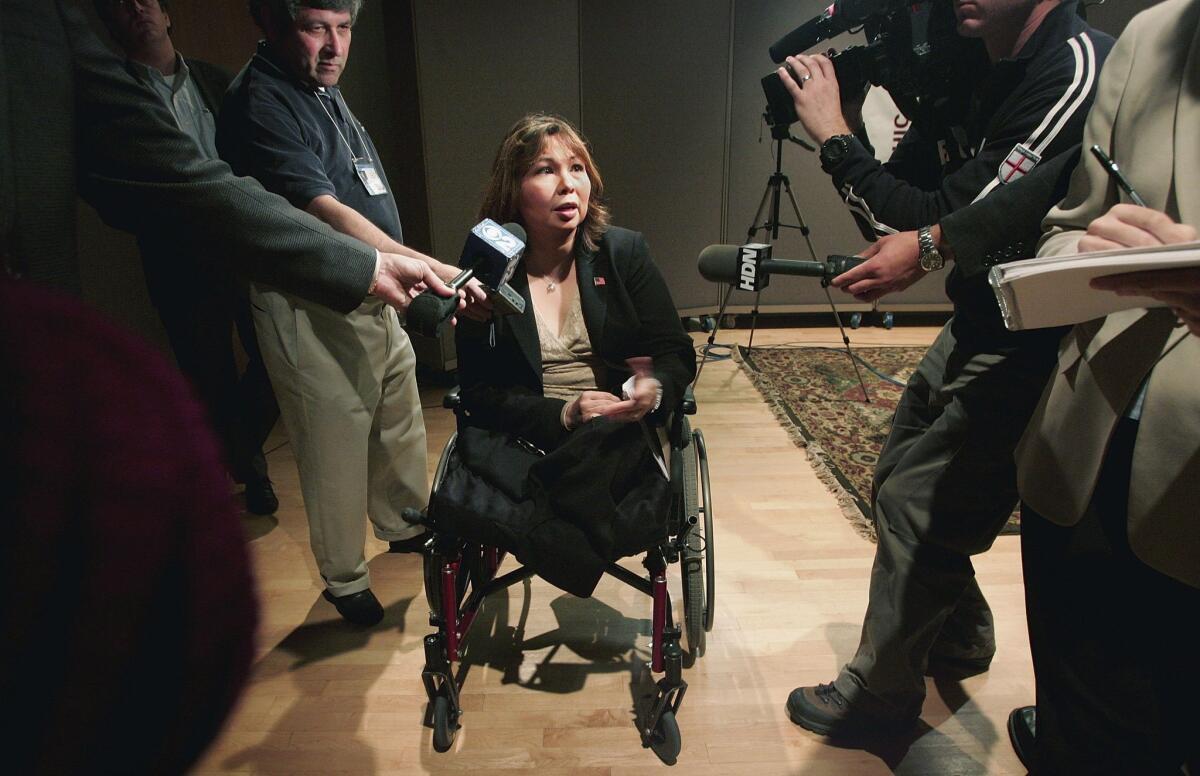Editorial: Revamp VA disability benefits

The United States owes an incalculable debt of gratitude to its military veterans. It also owes them something more tangible — timely and appropriate treatment and compensation for disabilities tied to their service. But the Veterans Administration and members of Congress also have an obligation to ensure that those who receive disability benefits truly deserve them and are treated equitably. Unfortunately, as a recent investigation by The Times’ Alan Zarembo shows, the government is failing badly.
The scandal of delayed delivery of medical care at Veterans Administration hospitals came to a boil this summer, prompting the resignation of Secretary Eric Shinseki and a congressional effort to speed up veterans’ access to doctors. But the problems Zarembo cataloged are on another front — the determination of disabilities, and who is eligible to be compensated for them.
The system’s absurdity was spotlighted last year when Rep. Tammy Duckworth (D-Illinois), a veteran who lost both legs and the use of one arm when her helicopter was downed in Iraq, grilled a witness at a congressional hearing over the 30% disability rating he received for a relatively minor foot injury incurred playing football for the U.S. Military Preparatory Academy. Duckworth shamed the witness — who was never on active duty, who went on to play quarterback at the University of San Diego and who now receives lifetime benefits of $450 per month — for using his trumped-up status as a disabled vet to gain federal contracts.
Yet the contractor, Braulio Castillo, apparently broke no rules, and that’s the real outrage. As is the “iron triangle” coalition of lawmakers, veterans groups and VA officials who have stymied efforts to reform the system despite reports of inconsistent and illogical decisions, and complaints that the system is rooted in outdated perceptions of what constitutes a disability.
This is a politically sensitive issue, but that doesn’t mean it should be ignored. Many ailments, to be sure, are inextricably tied to service, from limbs lost in battle to post-traumatic stress to bodies weakened and eroded by the rigorous physical demands of being ready for combat. Yet disability payouts from the VA — $58 billion this year, up from $49 billion last year — also cover conditions that arise during a veteran’s time of service, even if the disability wasn’t incurred in the line of duty. Reform measures proposed by the Government Accountability Office and others — including basing disability on functional limitations rather than the extent of the injury, or offering one-time payouts rather than a lifetime of checks — have gone nowhere.
It’s past time for an overhaul. Congress needs to balance its responsibility to taxpayers with its obligation to ensure that veterans who have suffered injuries and contracted ailments in service to their country receive appropriate help and compensation.
Follow the Opinion section on Twitter @latimesopinion
More to Read
A cure for the common opinion
Get thought-provoking perspectives with our weekly newsletter.
You may occasionally receive promotional content from the Los Angeles Times.






